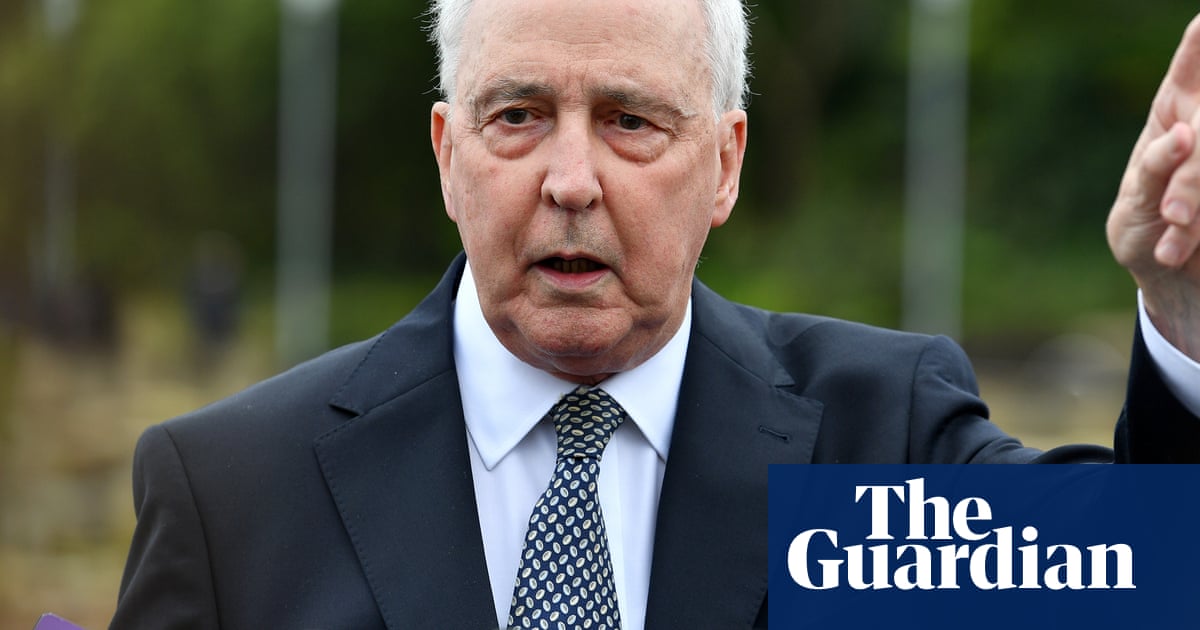Former Australian prime minister Paul Keating has savagedAnthony Albaneseand “factional lightweights” within the Labor party over moves to dump ministers Ed Husic and Mark Dreyfus from cabinet, calling the decision unfair and disrespectful.
Jostling between right faction MPs in New South Wales and Victoria led to Husic, the industry and science minister,being pushed out of cabinet on Thursday, in a move Labor insiders said was ruthless.
Keating, who led the party from 1991 until 1996, said the ouster represented “an appalling denial of Husic’s diligence and application”, including in his promotion of emerging technologies in Australian public policy.
Keating, the country’s 24th prime minister, has previously described the Chifley MP as a future leader of theLabor party.
“As the cabinet’s sole Muslim member, Husic’s expulsion from the ministry proffers contempt for the measured and centrist support provided by the broader Muslim community to the Labor Party at the general election,” Keating said in a statement.
Sign up for Guardian Australia’s breaking news email
“And for what? To keep up some notional proportional count between factions and elements of the Right of the party between states, in this case between representatives of New South Wales and Victoria.”
Husic and his supporters appealed to the prime minister, Anthony Albanese, to intervene to keep him this week, but were rebuffed. His demotion makes way for Labor members including NSW senator Tim Ayres and Victorian MPs Sam Rae and Daniel Mulino to be promoted.
Keating suggested Albanese should have stepped in to save Husic.
“The prime minister has recently made notable ‘captain’s calls’ in a number of otherwise rules-based pre-selection ballots,” he said.
“His non-intervention in respect of a New South Wales minister on this occasion is, in effect, an endorsement of a representative of another state group – in this case, the Victorian Right faction led byRichard Marles.
“A faction demonstrably devoid of creativity and capacity.”
He also criticised the move by Victorian right faction MPs to remove Dreyfus, who has been attorney general since 2022 and held the same role at the end of the Rudd-Gillard government in 2013.
Keating said “factional lightweights” had pushed out Dreyfus, calling him “the cabinet’s most effective and significant Jewish member”.
Sign up toBreaking News Australia
Get the most important news as it breaks
after newsletter promotion
“A showing of poor judgment, unfairness and diminished respect for the contribution of others,” he said.
The decisions are set to be endorsed by a meeting of Labor’s full caucus at Parliament House on Friday, the first since Labor’s thumping election victory on Saturday.
Husic conceded last year that many Muslim and Arab Australiansdid not feel listened to by the Albanese governmentover Israel’s war in Gaza, describing his public interventions as necessary so that people believed “that their concerns have somewhere to go to be vented and aired”.
He also called for a cut to the corporate tax rate last year, in a bid to encourage artificial intelligence and advanced manufacturing, frustrating some colleagues.
Don Farrell, the trade minister and a factional heavyweight from the South Australian right faction, is understood to have thrown his weight behind the decisions.
A Labor legend, Keating has been a public critic of the Albanese government in the past. He accused Albanese, Marles and the foreign minister, Penny Wong, of abandoning traditional party valuesover support for the Aukus nuclear submarines agreement.
Keating even suggested last year on the subjects of defence and foreign policy, “this is not a Labor government”.
Albanese’s second cabinet is expected to be sworn in on Tuesday next week.
